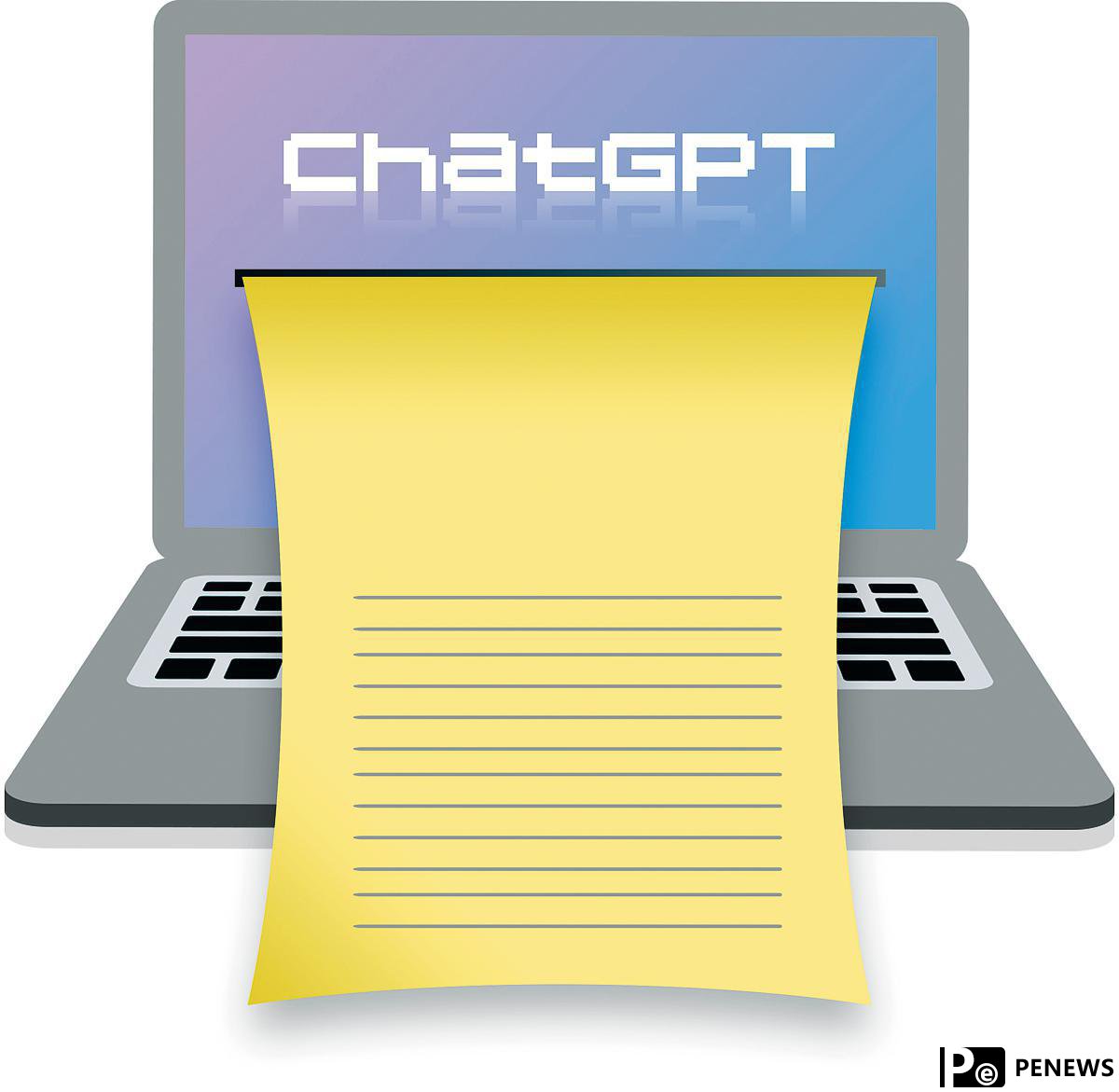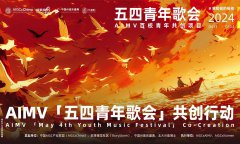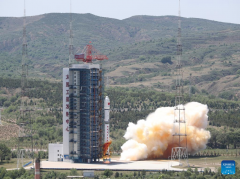Home>>
Universities seek to restrict AI use by studentsBy Zhou Wenting (China Daily) 11:55, January 27, 2025

(Lu Ping/China Daily)
As university students around China busily prepared for their final exams in January before the semester ended, artificial intelligence played the role of a learning buddy more frequently than ever before.
A law major at a university in Shanghai said that he completely relied on AI to produce PowerPoint slides, with which he made presentations that allowed him to pass the assessment for the subject of intellectual property law.
"The AI software can turn in a PPT document in just five minutes, and adjust the page style and aesthetics according to my orders. The presentation went smoothly and nobody realized that I had turned to AI for help," said the student, who wanted to be referred to as Lin.
The 22-year-old said that he and his classmates are adept at using common generative AI tools developed by both foreign and domestic companies, and know which tool works best for a particular task. The overall user experience is not bad, he said.
Like Lin, Chinese millennials born and raised in the internet age are among the major users of AI. For some, technology has become an indispensable assistant in everyday life and studies. Some even use AI to write papers and theses.
Taking note of this trend and establishing guidelines for responsible AI use, Fudan University in Shanghai introduced a set of regulations in late November to limit AI use in undergraduate thesis writing.
It was the first time that an institution of higher education in China had issued detailed, practical regulations on the use of AI. Involving six prohibitions and penalties, such as revoking degrees for severe violations, the restrictions are believed to be the first of their kind in the world for AI use in academic settings.
"The use of particular AI functions banned for students writing graduation theses reflect the specific abilities we focus on developing in youngsters, and what kind of people we ultimately aim to cultivate," said the head of the academic affairs division at Fudan University, who did not wish to be named.
"At the undergraduate level, the university wants to assess the students' abilities to innovate, think critically, express themselves properly, and write. These are all tested through the thesis, and we don't plan to compromise on shaping such abilities in this era of technological explosions," he said.
Several university teachers said that amid the irreversible march of technology, schools will guide students on the proper use of AI tools to increase learning efficiency and broaden horizons while avoiding AI overuse and misuse, which threatens academic integrity.
"The new era of accelerated technological developments has placed new requirements on university education and teachers. Teaching should be more focused on human abilities that cannot be replaced by machines. Also, the method of university education to evaluate students' literacy and capabilities should be updated," said Shen Yang, an associate professor at Shanghai Jiao Tong University's School of International and Public Affairs.
Fudan University's regulations state that the use of AI tools is banned for designing research plans, building algorithms and model frameworks, devising thesis structure, and summarizing conclusions.
"We hope AI will empower young people, rather than replace them in doing work with original innovation," said the head of the academic affairs division at Fudan University.
Fudan's regulations also stipulated that AI cannot be used to polish up language and for translations.
"Smooth writing and clear logic are the key capabilities we hope to see in students across all majors at the undergraduate level. These are closely related to their ability to think creatively," said the university representative.
If undergraduate students do not lay an emphasis on the ability to express themselves and write, they may miss the best opportunity to build such ability, as studies in the following phase may focus on other abilities, for example, the ability to carry out scientific research independently, he said.
According to the document, conditions where AI can be used include helping to retrieve and review literature, making charts and figures based on already existing ones, and collating references — all aimed at improving efficiency. This is only allowed with the supervisor's consent and when AI-generated content does not affect the evaluation of student's innovating capabilities.
Fudan University said that each department can formulate more specific regulations on AI use in assignments according to its own characteristics.
Prior to Fudan University, nearly 10 tertiary education institutions in the country voiced their intentions of discouraging students from misusing AI in academics, especially in writing graduation thesis.









